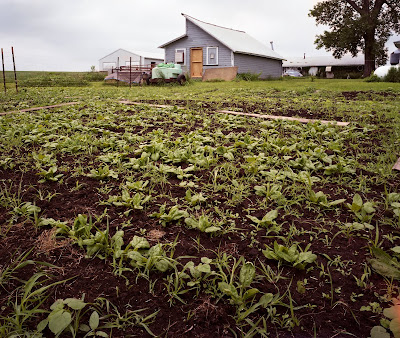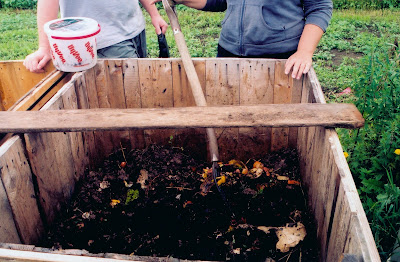
This is the Hemingway Land Project, a small-scale sustainable farm located amidst industrial farmland near Iowa City, Iowa.
The founders, Bryan and Leanne, have committed themselves to growing most of their own food and buying locally from farmers markets.















